Your Research. Your Life. Your Story.
A magnetic community of researchers bound by their stories
Every researcher has a story. What’s yours?
Fieldwork in Egypt: Struggles and successes

My purpose of coming to Egypt is to deploy some temperature loggers at turtle nesting sites in the Red Sea. This sounds like it is an easily accomplished goal, but there were loads of obstacles in the way. I ended up speaking with a researcher who published a paper about sea turtle nesting sites in the Red Sea. She set me up with an Egyptian Environmental Agency ranger, who patrols the nesting beaches. This ranger, Islam, became a very important point of contact for this research.
After a week of filling out the paperwork to get approval to conduct my field work, and preparing my materials, I got the okay to book the trip on a Thursday, with plans to fly in on the Sunday morning. So, as you can imagine, this was super last minute, and I still had to book my trip (flights and hotel) through the KAUST travel agency in order to have the costs covered. But it was Ramadan and the offices in Saudi had shortened hours, so it took a lot of emails and reminders to get the trip booked. Finally, the day before I was leaving, I received confirmation that my flights were booked.
I packed all my field work materials and headed on my way to Egypt. In my carry-on, I held onto the temperature loggers because they are super expensive and I didn’t want to lose them. Altogether, they cost like 2,000 so putting that in my checked-in bag scared me. And if I could have them in my sight at all times, I’d know they were safe. But when I arrived at my layover in Cairo, all hell broke loose. By the way, if you have a layover in Cairo, I recommend a long one. I ended up getting in the wrong customs line which literally took 1.5 hours for me to get to the counter, only for him to tell me I should take the bus to another terminal. I was on a flight from Saudi; all the announcements were made in Arabic, so I was clueless. In hindsight, I need to ask for instructions next time, but in my defense, everyone from my flight went into this line. Actually it wasn’t even a line, it was a giant blob of people literally pushing each other to the front; it was my personal hell. After I dried my frustrated tears, someone called a shuttle for me to transfer to the domestic terminal. But upon my entrance, as I passed through a security checkpoint, they stopped me to look through my bag. My bag did look a bit sketchy, because it was filled with rope and PVC pipe for my project. And then they found my GPS and temperature loggers and were not pleased. I showed them my field plan, explained I was a student in Saudi, and they still were trying to say I could not bring them on the plane. This is when I had a little breakdown, because if these loggers were taken away, my entire trip to Egypt would be pointless. It doesn’t help that the loggers have lithium batteries in them, oops. But after pleading and crying, I was able to check in the bag to my final destination, Hurghada. Of course for my entire layover and flight, I was convinced that they were just going to take them out of my bag and I’d turn up to Hurghada with a bag without my field supplies. But as things usually do, it all turned out okay.
I took a taxi and got to my hotel at around 8 PM. I checked in, exhausted and defeated, and put all my belongings in my room. The next task was to figure out what time and where I was meeting Islam the next day to take a boat. Of course, my hotel WiFi wasn’t working so I was freaking out about how I was going to contact him. But first, I decided to eat some dinner because I had gone the whole day without food (too stressed). I headed to the hotel buffet dinner (shout-out to KAUST for booking me in an all-inclusive) and finally ate a bit of food. When I was done eating, I went to the lobby to take out money for the boat the following day. That’s where I miraculously found Islam who had come to look for me. He wanted to show me around Hurghada and talk about the field work plan, so I got in his car and we headed to the downtown area. Our first stop was the marina, where the boats depart from.
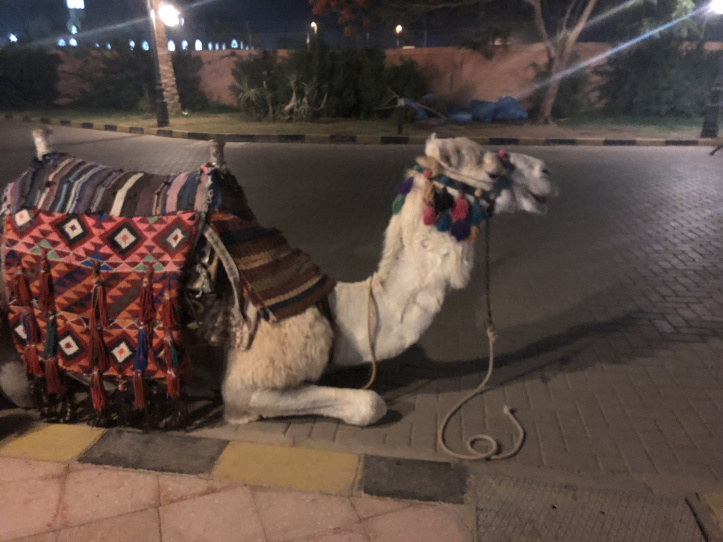
Camel chillin at the Marina
But it’s also a popular restaurant and walking area. At night, the streets were a lot more bustling than in the evening than during the day. This is because the locals were fasting during the day for Ramadan. Then after the sun sets, they eat their iftar dinner and then spend evenings shopping and playing with their kids outside. Islam showed me where to meet the next morning for the boat ride to Small Gobal Island. Then, we headed out to the main road, passing by colorful spice markets and tourist shops. I looked around a bit and then we went to a cafe for shisha and I got a fruit smoothie. Yum mango guava, it was delicious! I explained my background, we shared traveling stories, and we chatted about turtles. Islam had been working as a ranger for ten years, specializing in turtles but doing other work as well. He was explaining to me that when local diving companies see rare wildlife, they report it to the government environmental agency he works for and the rangers go out to take photos and GPS points. He was telling me stories of dugongs, whale sharks, brydes whales, false killer whales, and all these awesome animals he gets to see at work! So cool! His work has also sent him to several turtle conferences and trainings around the world. He was telling me about his visits to Baltimore, Zanzibar, and Greece. By the time we were done walking around and chatting, it was already past midnight (1 AM with the time change) and after my stressful travel day, I was ready to get some sleep.
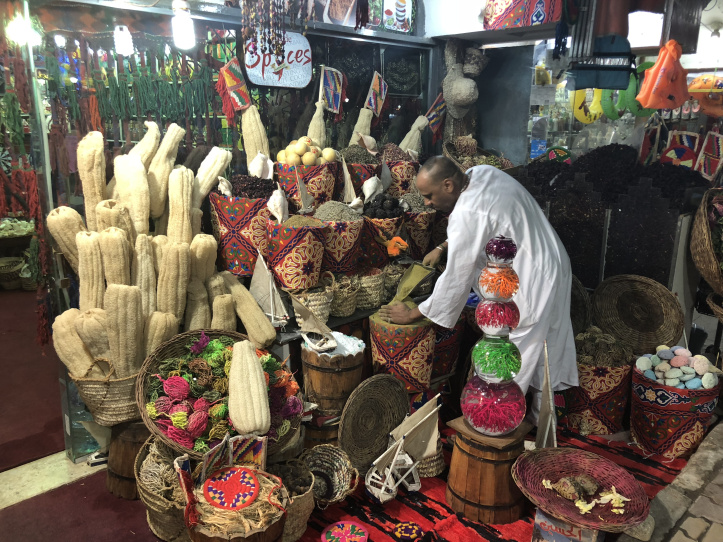
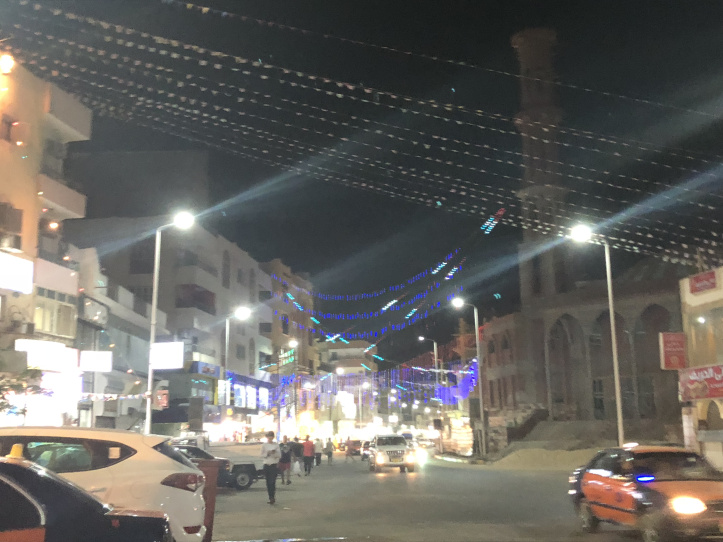
Streets of Hurghada
The next morning I left my hotel at 6:30 AM to head to the field. I had a small breakfast at my resort, prepped my field work, and packed all my materials for the day so I ended up waking up at 5 AM. When I arrived at the boat harbour, the captain of the boat was working on the engine. From my experience doing field work in pretty remote places, I’m used to boats being repaired last minute or even on the trips. So I kept calm and patiently waited. About 45 minutes later he assured me that it was fixed, but raised concern about the high winds. I let him know that I really had to get to Small Gobal that day, because I didn’t book my trip long enough to have buffer days in case of bad weather. I assured him that I don’t get seasick and I don’t mind choppy boat rides, so we headed onwards.
To say that this boat ride was an “adventure” would honestly be an understatement. The waves were so big that when we went over them the bow (front) of the boat would go high in the air. And then due to the high winds, the bow acted like a sail and would get pushed back, so the boat was uncomfortably vertical. To fix this, the captain had me and Islam move forward on the boat to weigh the front down. To note, the captain didn’t speak English so we were communicating by hand gestures which made for a hilarious scene. The waves were too large to sit so we held onto a rope and got in a surfing position to avoid falling over. I personally like adrenaline so I was having a great time. The captain found some American pop music so I was jamming away, laughing as we went top speed towards the island. This wasn’t any short boat ride either, it was something like 70 km away. So we had to go fast to make good time, which was difficult due to the weather.
We took a few breaks so I could rest my fists from clinging onto the boat for dear life. Both Islam and the captain were extremely impressed that I wanted to go on and was not sick or scared. I assured them that “I’m not your average tourist and I like the adventure.” So we continued on, passing by some scuba sites and beautiful reefs. It definitely made me want to return to Egypt so I can dive at these world famous sites.
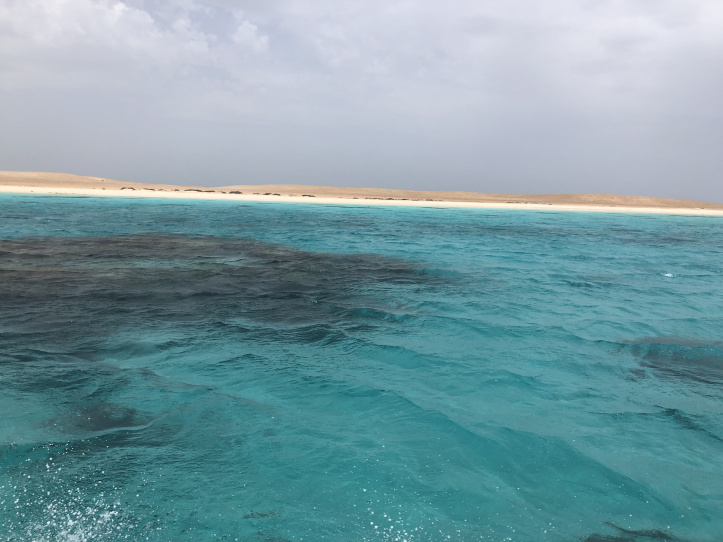
The views as we headed into the island
When we arrived to Small Gobal island, about 2.5 hours later, I was blown away by the color of the water. I felt like I was in the Maldives. I also lucked out to have an overcast day; the sun wasn’t too harsh and I could enjoy being outside without getting overheated. Islam told me that there was some nesting activity at this site. But I chose it mainly for its location – it was the Northern Red Sea – which would have been very helpful when I analyzed my data.
Anyway, the day was spent deploying loggers. I had four sand sites, and at each site I buried a temperature logger at 50 cm and 30 cm, which are the average depths of green and hawksbill turtle nests, respectively. Each logger records the temperature every 15 minutes. So in the end, I can see how the temperature of nests differs at different depths throughout the Red Sea. I currently have 5 sites in the Red Sea, and am working on getting approval for two more.
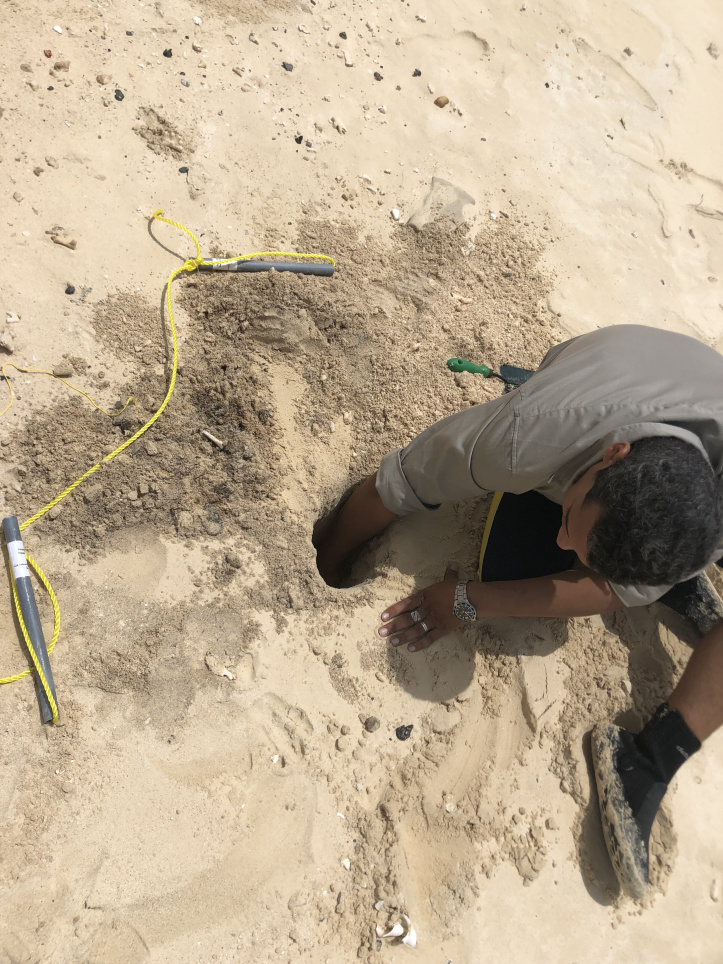
Islam digging a 50 cm hole. I attach the loggers to a string which connects to this yellow rope to make the retrieval process easier
After getting the GPS coordinates for each site, and taking a million photos so we could find the loggers again, we did a quick hike on the island. The views were absolutely stunning. And a highlight was the fact that there were hardly any people. We could see a few scuba boats, but it was nothing compared to the 500+ boats that go to Giftun Island every day. This was going to be a site of mine, but I felt that it had so many visitors that the loggers would probably be lost.
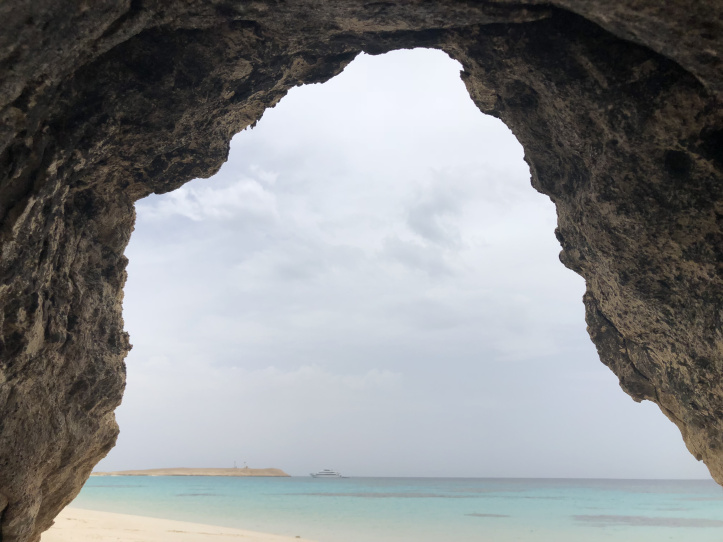
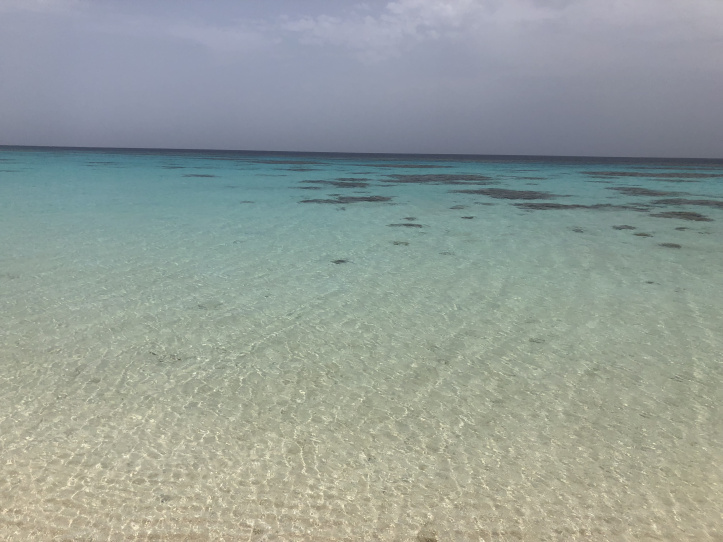
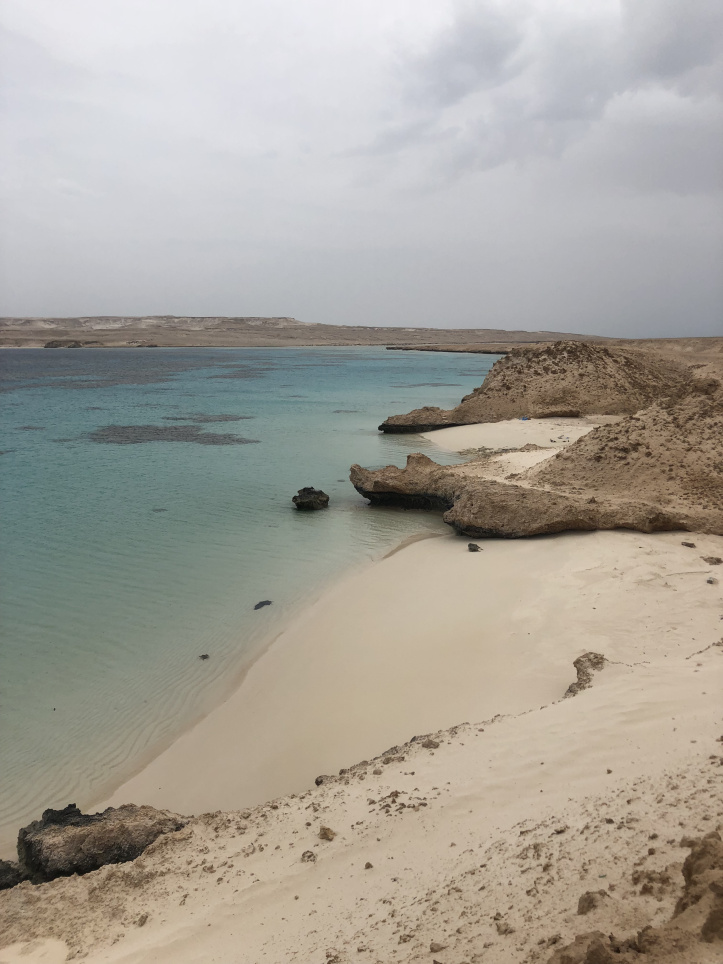

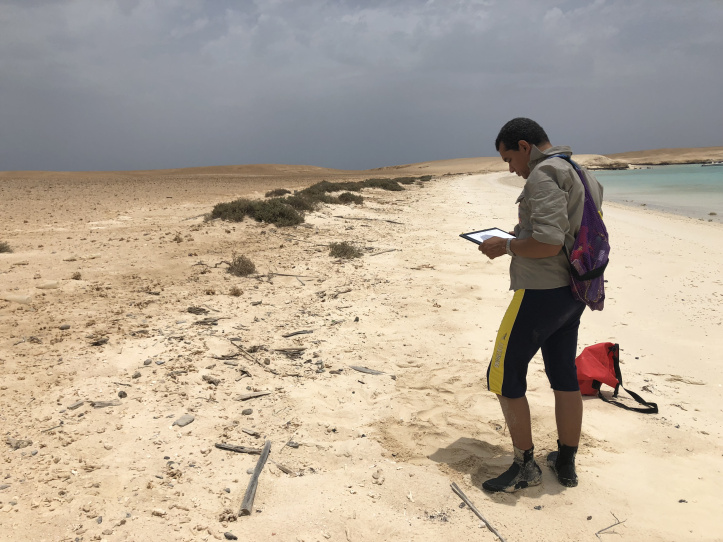
The island was mostly made of sand and dirt, so it wasn’t incredibly scenic. And on the exposed side, there was a ton of plastic pollution which broke my heart. Even far off the coast, in a remote area of the Red Sea, the impact of humans is evident.
The next method in my project involved deploying four temperature loggers in the water at a depth of five meters. I do this to ground truth remotely derived sea surface temperatures (sst) to see if these measurements can be used as a proxy for sand temperature. I love getting to go into the ocean for this part of my project. Every single site thus far had incredible reefs offshore, even if I didn’t expect there to be. This island was no exception; there was so much coral cover and tons of fish. I enjoyed getting to compare this side of the Red Sea to Saudi Arabia. It was pretty similar, and I definitely recommend visiting Egypt if you are a fan of coral reefs. Islam was super helpful in freediving and finding good sites for the loggers. But I was nervous that the loggers will be removed by snorkelers or divers, despite having signs that say “research in progress, please do not remove.” But we will see in about two months.
Finally around 2 PM, it was time to head back. Fortunately, the trip to the harbor was a lot less dramatic because we were going with the wind so the boat didn’t have to go over those massive waves. I was even able to fall asleep! The trip back took about two hours. Islam dropped me off at my resort, and I grabbed my computer and logged some data I had taken, while I sat and ate some food. Because it was Ramadan, Muslims don’t eat or drink between sunrise and sunset. I felt rude to eat in front of them, so by the time I got back, I was ravenous. Fortunately, I stayed at an all-inclusive that has food all the time. So I sat by the pool, entered data, and ate a nice big plate of fruit.
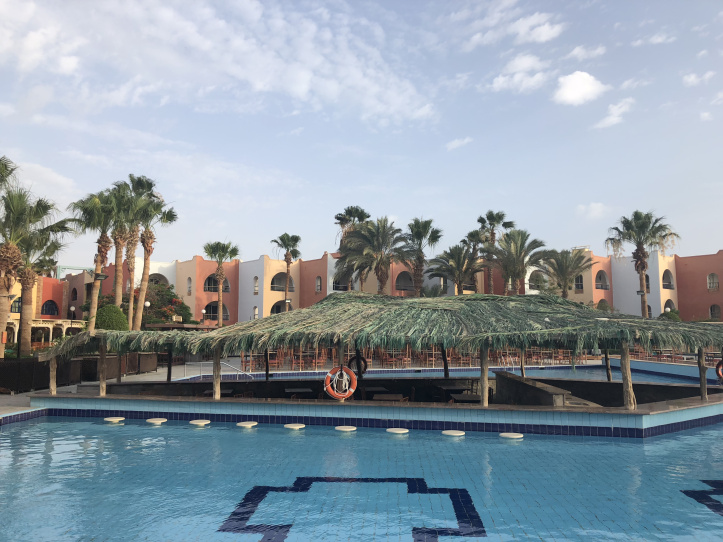
Pool views
In the evening, I walked around town, did some souvenir shopping, and then headed back to my hotel to hangout and rest. The next day, I was getting picked up at 6 AM for another day of field work.
Lyndsey Tanabe (@lynds_sea) is a Marine Science PhD Student in Saudi Arabia. This story was published on June 4, 2018, on Lyndsey’s blog, adventures (available here), and has been republished here with her permission.
Comments
You're looking to give wings to your academic career and publication journey. We like that!
Why don't we give you complete access! Create a free account and get unlimited access to all resources & a vibrant researcher community.

Your Research. Your Life. Your Story.
A magnetic community of researchers bound by their stories






